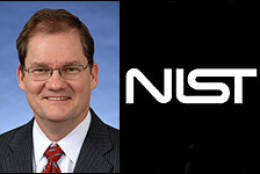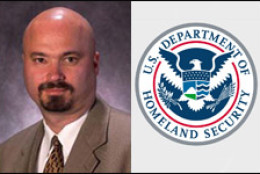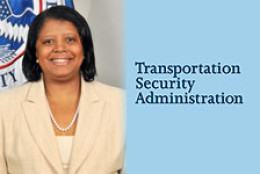Mobile computing
-
IT Lab Director Charles Romine said the organization collaborates with an ever-growing number of agencies on technology challenges. He said the Lab also is focusing on questions around cloud, cybersecurity, mobile computing and big data. January 10, 2013
January 10, 2013 -
Charlie Armstrong, the agency's assistant commissioner for the Office of Information and Technology and chief information officer, said a new cloud initiative is the target environment for mission support systems. CBP recently moved all of its employees to email-in-the-cloud. January 3, 2013
January 03, 2013 -
Bob Brese, the agency's CIO, said cloud service and security operations center will help make the move to smartphones and tablet computers easier. December 20, 2012 (Encore presentation January 31, 2013)
December 20, 2012 -
The Equal Employment Opportunity Commission needed to find savings after its IT budget received a 15 percent reduction in 2012. Kim Hancher, the EEOC CIO, decided to reduce spending on mobile devices and instituted a BYOD policy to cut spending by almost 50 percent. December 6, 2012
December 06, 2012 -
Deputy CIO Charles McClam said the Department of Agriculture is developing a policy and has awarded a mobile device management contract to figure out how best to let employees use their own smartphones and tablet devices on the agency's computer network. NASA Goddard also is creating a BYOD policy that depends on its virtual desktop infrastructure.
November 08, 2012 -
DISA wants a secure mobile device manager and app store to support at least 162,000 Apple and Android mobile devices. Contract would begin next spring.
October 23, 2012 -
Procurement will start with management of 5,000 mobile devices, plus app stores for consumers inside and outside of VA. The agency awarded a three-year, $9.3 million deal to Longview International Technology Solutions to build and manage the technology in the cloud.
October 03, 2012 -
Dr. Emma Garrison-Alexander, TSA's chief information officer, said the goal is to make sure employees have the right device to match up with their mission requirements. September 20, 2012
September 20, 2012 -
Instead of using a lengthy security technical implementation guide approval process to decide which tablets and smartphones will be allowed to use its network, the Defense Information Systems Agency wants to put the ball in the vendors' court.
August 09, 2012 -
New guidelines could help agencies adopting bring-your-own-device strategies manage the potential risks smartphones and tablets could pose.
July 18, 2012 -
Early-adopter agencies of the bring-your-own-device idea are blazing their own trail through the security, privacy and policy challenges of personally-owned devices on government networks.
July 05, 2012 -
NIST, DHS experts say protecting smartphones and tablets shouldn't be any different than securing typical desktop or laptop computers. DHS will release mobile security reference architecture to help agencies understand common concepts. NIST is updating security control guide with 250 new requirements, including mobile controls.
June 21, 2012 -
CIO Adrian Gardner said he will pilot the technology this summer. VDI also will help with foreign nationals who need access to some of the space agency's data for collaborative projects. Gardner said the Innovations program is looking other leading-edge software.
June 05, 2012 -
Federal CIO Steven VanRoekel said the new documents met three of five action items that agency technology managers developed last winter. OMB received buy-in not only from CIOs, but CFOs, CAOs and CHCOs before finalizing the plans.
May 25, 2012 -
CIO Tommy Hwang said the agency is receiving more documents electronically from agencies and law firms than ever before. He also is moving the email system to the cloud and developing a BYOD policy. May 17, 2012(Encore presentation June 28, 2012)
May 17, 2012








